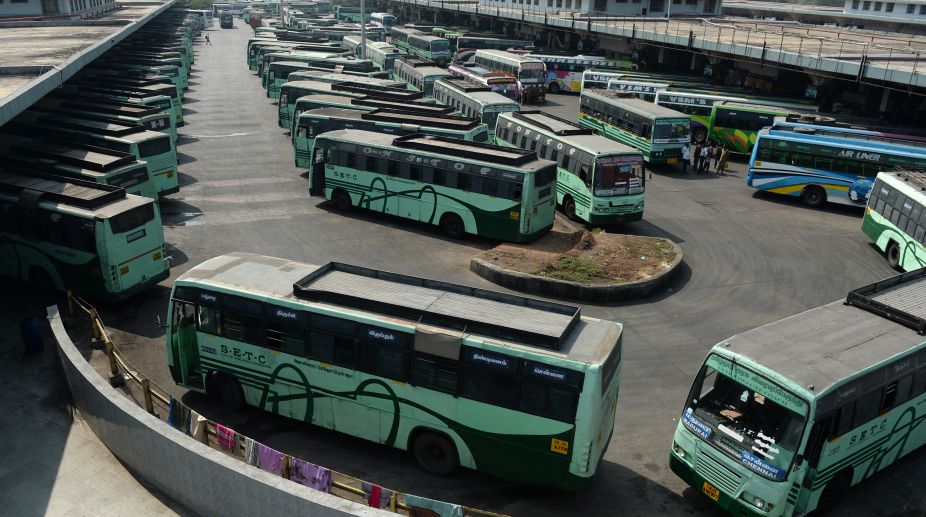For the first time in Tamil Nadu’s history, the state witnessed a rare protest in front of its chief minister’s residence on Wednesday over bus fare hike.
A group of activists belonging to Students Federation of India (SFI) led a protest march to the residence of CM Edappadi K Palaniswami. Sixteen of them were arrested by the police, while trying to disperse the agitating group. This act was unthinkable when Dravidian stalwarts like M Karunanidhi, M G Ramachandran and J Jayalalithaa were at the helm.
Meanwhile, the protest against Tamil Nadu State Transport Corporation (TNSTC) for fare hike is slowly snowballing into a statewide protest like pro-Jallikkattu stir witnessed in 2016, which was led by the state’s students band youth.
Though Opposition parties like DMK and PMK are up in arms against the fare hike, the agitation gained momentum and strength only when the students took to the streets. While SFI is is spearheading a strong protest for the past few days, hundreds of students with no political backing are voicing their objections through social media, mainly through Whatsapp groups. During the Jallikkattu stir also the Whatsapp groups played a vital role.
The agitation, which is now following the pattern of “Occupy Marina Beach” demonstration held in January 2016 by some youths, demanding lifting of the Supreme Court ban on Jallikkattu, is worrying police and administration alike.
“This is a disturbing trend as this is the first time in recent history we are seeing an agitation of this kind in Tamil Nadu. During the tenures of Jayalalithaa and Karunanidhi, no one dared to stage a demonstration or agitation anywhere near the residences of the then chief ministers,” said a former Intelligence Bureau official . He also said that the CPI(M), though a miniscule party in the state, is leading the agitation against the bus fare hike.
Another intelligence official pointed out that there were many sit-ins staged by students in educational institutions in the state to demonstrate their anger against the fare hike. “We will not be surprised if this develops into the kind of agitation which we saw at Marina in January 2016,” he said.
The eight-day agitation by the employees of the Tamil Nadu State Transport Corporation just before pongal, that paralysed bus services in the state, was supported by students of Madras University and All Tamil Nadu Students Association. P W C Davidar, additional chief secretary (transport), told media that the bus fare hike was a tough decision. “But the allegation that the fares were increased by 67 to 108 percent is not correct.
We have made only a marginal hike in mofussil services. The minimum fare has been increased from Rs 5 to Rs 6. Even after the hike, Tamil Nadu has the lowest bus fares than other neighbouring states,” said Davidar. The last time Tamil Nadu government hiked the fares was in 2011. “While Karnataka hiked bus fares 16 times since 2000, Andhra Pradesh and Kerala hiked the fares eight times during the corresponding period,” points out Davidar.
What is disturbing is the fact that even after the agitation in front of his residence, chief minister has not bothered to explain to the people the factors which forced the government to go for a hike. In 2011, the then chief minister Jayalalithaa addressed the people through the electronic media and requested them to cooperate with her since there was no other option than hiking the fare, points out observers.






